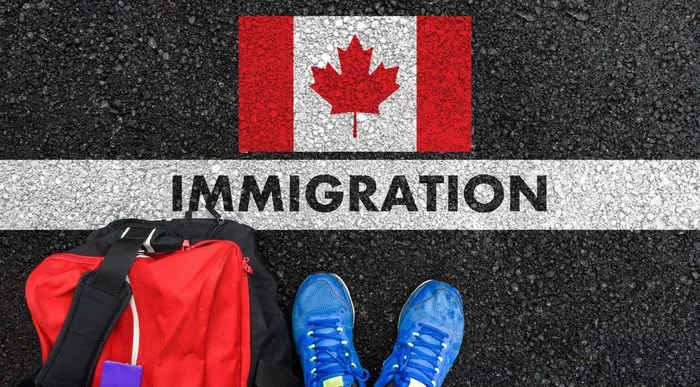Canada’s reputation as a welcoming and diverse nation attracts immigrants from all corners of the globe seeking to establish permanent residency. While the journey towards obtaining permanent resident status can be exciting, it often involves navigating through a complex bureaucratic process. Understanding the timelines involved is crucial for prospective immigrants planning their future in Canada. In this article, we delve into the intricacies of processing times for Canadian permanent resident cards, offering insights, tips, and resources to streamline the journey.
Understanding Permanent Residency in Canada
Before delving into processing times, it’s essential to grasp the concept of permanent residency in Canada. Permanent residency status grants individuals the right to live, work, and study anywhere in Canada indefinitely. It is a significant milestone on the path to Canadian citizenship, offering access to numerous benefits, including healthcare coverage and social services.
There are several pathways to obtain permanent residency in Canada, including economic immigration programs, family sponsorship, and refugee protection. Each pathway has its unique eligibility criteria, application process, and processing times.
Factors Affecting Processing Times
Processing times for permanent resident cards in Canada can vary significantly depending on various factors. Understanding these factors can help applicants manage their expectations and plan accordingly. Some key factors influencing processing times include:
1. Type of Application: The processing time can vary based on the type of application submitted. For example, applications under economic immigration programs such as Express Entry may have different processing times compared to family sponsorship or humanitarian and compassionate grounds applications.
2. Completeness of Application: Submitting a complete and accurate application is crucial for timely processing. Incomplete applications or those missing required documents may face delays as immigration authorities request additional information.
3. Volume of Applications: The number of applications received by immigration authorities can impact processing times. During peak seasons or when there are policy changes, processing times may increase due to higher application volumes.
4. Security and Background Checks: Immigration authorities conduct thorough security and background checks on applicants, which can contribute to processing delays, particularly for individuals with complex histories or those from countries with heightened security concerns.
5. Country of Residence: Processing times can vary based on the applicant’s country of residence. Some countries may have streamlined processing agreements with Canada, leading to faster processing times, while others may face additional scrutiny or administrative delays.
6. Interview Requirements: In some cases, applicants may be required to attend an interview as part of the application process. Scheduling and conducting interviews can add to processing times, particularly if there are limited appointment slots or logistical challenges.
7. Policy Changes: Changes to immigration policies or procedures can impact processing times. It’s essential for applicants to stay informed about any updates or changes that may affect their application process.
Average Processing Times for Permanent Resident Cards
While processing times can vary based on the factors mentioned above, immigration authorities strive to process applications as efficiently as possible. To provide applicants with a general idea of expected timelines, Immigration, Refugees, and Citizenship Canada (IRCC) publishes average processing times for various immigration programs on its website.
As of the latest update, the average processing time for permanent resident cards varies depending on the type of application and the location of the visa office processing the application. For example:
Economic immigration programs (Express Entry, Provincial Nominee Program): Approximately 6 to 8 months.
Family sponsorship: Approximately 12 to 24 months.
Humanitarian and compassionate grounds: Processing times can vary significantly depending on the complexity of the case, ranging from several months to over a year.
It’s important to note that these are average processing times and individual cases may experience shorter or longer processing times depending on the factors mentioned earlier.
Tips for Expediting the Process
While some aspects of the application process are beyond the applicant’s control, there are steps individuals can take to expedite their permanent residency application:
1. Submit a Complete Application: Ensure all required forms are filled out accurately, and all supporting documents are included with the initial application to minimize requests for additional information.
2. Monitor Application Status: Regularly check the status of your application online through the IRCC’s secure portal. This allows you to track the progress of your application and respond promptly to any requests for additional information.
3. Provide Biometrics Promptly: If biometrics (fingerprints and photo) are required as part of the application process, schedule and attend the appointment as soon as possible to prevent delays.
4. Respond Promptly to Requests: If immigration authorities request additional information or documentation, respond promptly and provide the requested information within the specified timeframe to avoid processing delays.
5. Stay Informed: Stay updated on changes to immigration policies, procedures, and processing times by regularly visiting the IRCC website or subscribing to email updates.
6. Seek Professional Assistance: Consider seeking assistance from a qualified immigration consultant or lawyer to help navigate the application process, particularly for complex cases or situations requiring additional support.
Conclusion
Obtaining permanent residency in Canada is a significant milestone for immigrants seeking to build a new life in this diverse and welcoming country. While the journey towards permanent residency may involve navigating through a complex process with varying processing times, understanding the factors influencing these timelines can help applicants manage their expectations and plan accordingly.
By submitting a complete application, staying informed, and responding promptly to requests from immigration authorities, applicants can help expedite the processing of their permanent resident cards. While delays may occur due to factors beyond the applicant’s control, staying proactive and informed throughout the process can help minimize uncertainties and streamline the journey towards permanent residency in Canada.


